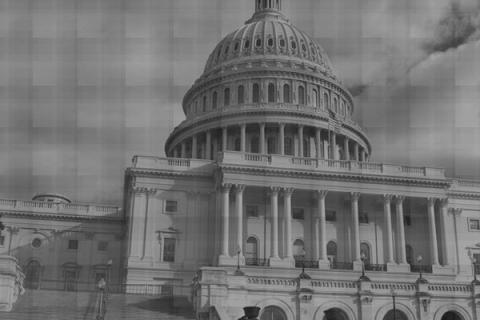One in five U.S. foreclosures is occurring in California, the state with the highest number of foreclosures. The ongoing foreclosure crisis is impacting more than just mortgage holders who've fallen behind, it is negatively affecting California communities. According to a new report by the Alliance of Californians for Community Empowerment (ACCE), the value loss on foreclosed and surrounding homes has cost homeowners a minimum of $632 billion. Taken together with losses in property tax income and foreclosure-related costs to local governments, that number could be as high as $1 trillion – at least a $337,379 value loss per foreclosure to the surrounding community.
From 2008 through 2012, there will have been an estimated 2 million California homes in foreclosure. The decline in value on foreclosed homes alone, the report states, will reach $207 billion (each one losing about 22 percent of its value). These down-spiraling home values drag neighboring home values down with them. The result will be an additional $424 billion in real estate value loss.
California has more “underwater” mortgages than any other state. Almost a third of golden state borrowers now owe more on their mortgages than their homes are worth. Mark Fleming, chief economist of CoreLogic, points out that negative equity “holds millions of borrowers captive in their homes, unable to move or sell their properties.”
Equity investments for residents aren't the only casualty of the housing market bubble. Local governments are directly injured by depressed property values. Almost $4 billion in property tax revenue will be lost to the malaise, forcing already overstretched government districts to either downsize, or come up with creative (and often unpopular) ways to generate revenue.
“With the continued foreclosure crisis and property value declines coupled with the lag in the new lower property assessments, the property tax losses being reported are just the beginning,” says the study. It continues:
“California communities have been struggling with a dysfunctional fiscal system that has limited property tax revenue and over-relies on residential taxes. The foreclosure disaster has exacerbated this revenue crisis. California’s communities depend on property tax as a primary source of revenue for vital services provided through their counties, cities, school districts and community colleges, and special districts.”
Hardest hit by lost income to counties are schools and community colleges which rely on 53% of property tax allocations. California county tax assessor data reveals a $627 million loss in property taxes for the 2009-2010 fiscal year alone. Propositions 8 and 13 are mentioned as drivers in the revenue decline as they allow unlimited reduction in property value assessments to market values and place a 2 percent cap on annual property value increases respectively.
Local governments must pay $17.4 billion in foreclosure costs through multiple agencies that are responsible for various things such as maintenance of blighted properties, inspections, trash removal, sheriff evictions and public safety issues attached to abandoned or squatted-in homes. Cities and counties pony up an average $19,229 for every foreclosure.
According to Los Angeles City Councilmember Richard Alarcon:
“Abandoned properties are draining the City’s dollars at a time when we can least afford it. A single foreclosure can cost up to $34,000 for local government agencies in the form of costs such as inspections, court actions, unpaid water and sewage charges, trash removal and LAPD intervention."
Don't expect lawmakers to be proactive about protecting homeowners and strengthening communities during these tough times. A related study by ACCE has shown that banks are spending heavily to lobby against consumer-friendly legislation. As reported by the LA Times, Bank of America Corp., JPMorgan Chase & Co., Citigroup Inc., Wells Fargo & Co., Goldman Sachs Group Inc. and Morgan Stanley, as well as the California Bankers Assn., the California Independent Bankers and the California Mortgage Bankers Assn. have given state representatives upwards of 70 million reasons since the start of the housing crisis to let bills such as AB 935, SB 729, and AB 1321 fail. These laws, respectively, would impose fees on foreclosing banks to lessen the economic impact on local governments, require loan servicers to consult homeowners about loan modification options before beginning foreclosure proceedings, and (last but certainly not least), make sure that the foreclosing party has the legal right to foreclose by mandating that the mortgage note be filed prior to issuing a Notice of Default.
Kevin Stein, associate director of an advocacy group for low-income borrowers, the California Reinvestment Coalition, told the Times, "The reality is the banks are stronger in the Legislature than the consumer groups.” He added:
“In a time of unprecedented crisis in mortgage lending and foreclosures, we should have seen better and more legislation from the folks in Sacramento."
Since 2008, there have been 1.2 million foreclosures in California. It is estimated that 800,000 more homes will be foreclosed on over the next 2 years. Foreclosures in 2011 will likely exceed 2010 levels.

